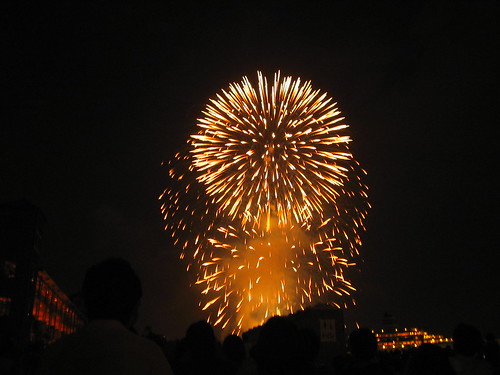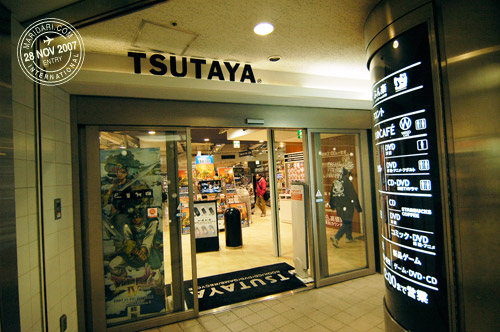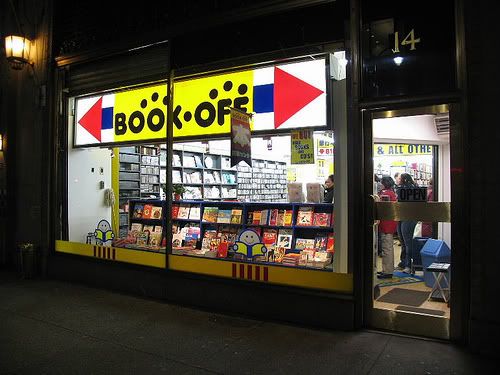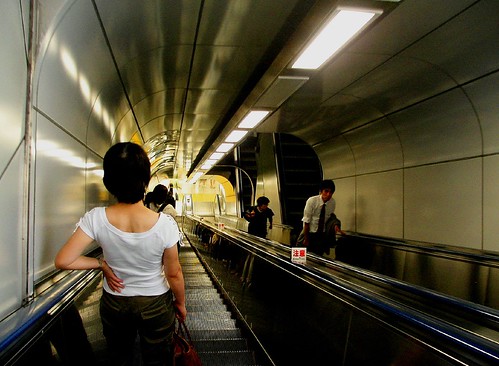Enjoy the Fireworks in Japan's Summer Fireworks Festival - Hanabi Matsuri
Japan has a tradition of holding a fireworks festival during the end of july-start of august period which is smack right in the middle of summer. It is a huge celebration in every part of Japan that has Yatai (street food stalls and games) covering the roads for miles and miles. And sure enough, you can expect thousands of people to be there.

Most men and women would dress in their respective kimono or yukata and would carry a fan (as the weather is very hot.. and also, it's part of the style!) as they walk around eating, playing games and stand around the river watching the boats sail pass. These boats are usually sponsored by several companies or universities and would have their staff or students sit on it and make a lot of noise.

Most people would be accessing the festival area via train and it is very common for trains to run extra-late and more frequently due to the high volume of passengers. Do expect an extremely huge crowd and that cellphone service might have some complications as well. It is also a known fact that pickpocketing will be a little more common in such situations, so be sure to keep your belongings safe.
There will also be a designated time for the fireworks to start, and you will see people reserving spots on the grass where they will drink beer, eat grilled meat and watch the fireworks with their loved ones. Do save a spot early (around 4-5pm) if you wish to have a picnic under the sky.

Most men and women would dress in their respective kimono or yukata and would carry a fan (as the weather is very hot.. and also, it's part of the style!) as they walk around eating, playing games and stand around the river watching the boats sail pass. These boats are usually sponsored by several companies or universities and would have their staff or students sit on it and make a lot of noise.

Most people would be accessing the festival area via train and it is very common for trains to run extra-late and more frequently due to the high volume of passengers. Do expect an extremely huge crowd and that cellphone service might have some complications as well. It is also a known fact that pickpocketing will be a little more common in such situations, so be sure to keep your belongings safe.
There will also be a designated time for the fireworks to start, and you will see people reserving spots on the grass where they will drink beer, eat grilled meat and watch the fireworks with their loved ones. Do save a spot early (around 4-5pm) if you wish to have a picnic under the sky.

















